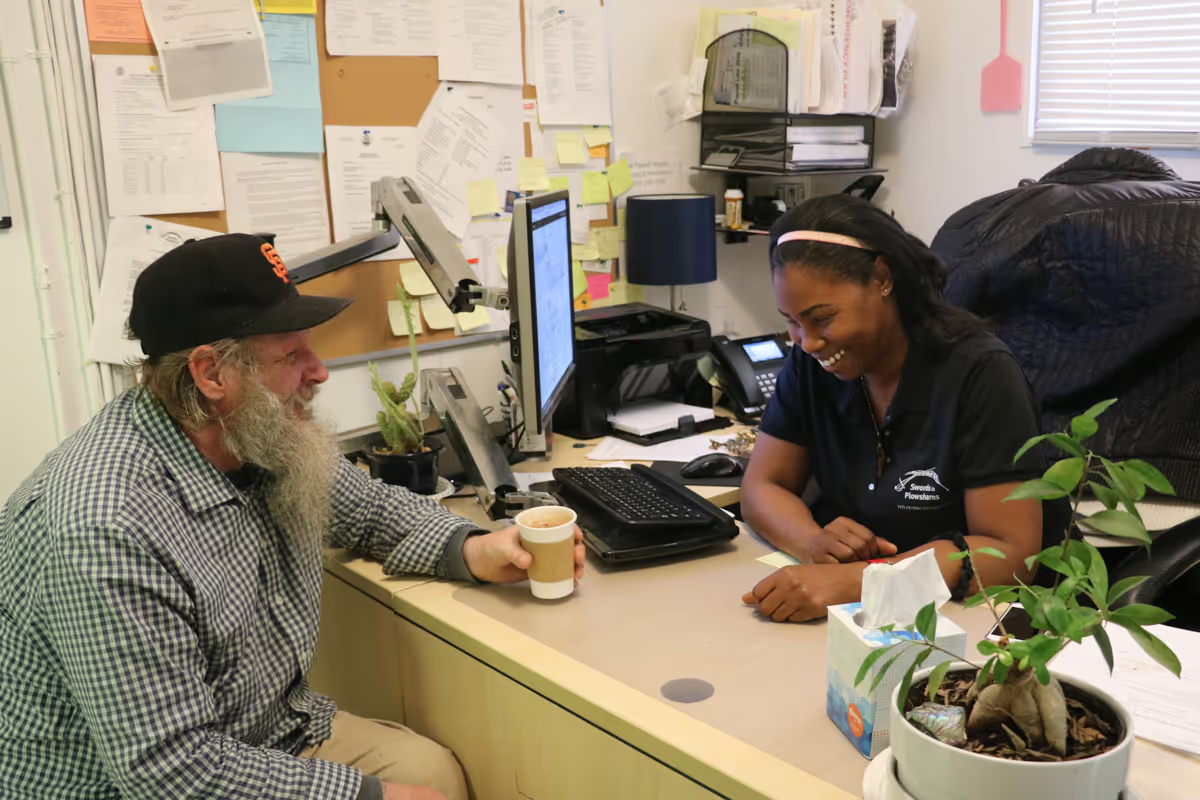HIRING VETERANS IS GOOD BUSINESS
Businesses have to look at the bottom line. It is our job to demonstrate that hiring a veteran is not an act of charity or patriotism—hiring a veteran is good business. Your job is to give employers the tools they need to understand veteran skills, connect with veteran job candidates, and retain those veteran employees. A key step is overcoming myths and stereotypes to get to the true value veterans bring to the employer.
Employers are key partners and require intentional outreach and ongoing relationship building. There have been good intentions in the post-9/11 years to support veterans and hire our heroes. Many local and national businesses would like to hire veterans but may not know how to develop an operational strategy to meet those goals.
Just as with veteran outreach, make sure you clearly explain the services you offer. Discuss what you both need in order to deliver job candidates. Clarify mutual expectations and duties. The more you know about the employer’s needs, the better the match for your veteran.
- How would they like to receive resumes?
- What skills are most/least important?
- What sort of candidate training will be relevant?
- How do they see a veteran filling this role?
- How long do they envision this position lasting?
- What opportunities are there for growth within the position and the agency?
ADDRESS EMPLOYER PERCEPTIONS OF VETERANS
Even when employers have positive views of veterans, some make assumptions, including, as research shows, the misconception that veterans lack emotional intelligence and interpersonal skills. Employers often see veterans as ill-suited for interpersonal communications positions, instead preferring them for jobs with minimal human interaction, even if there is nothing to suggest a veteran has poor social skills.
This is very unfortunate but it drives home the point that we have to be intentional and targeted in recruiting veteran employers for veteran clients. Do not assume that general support for those who serve translates to jobs for veterans.
Be prepared at the outset of the employer relationship to explain the value of your partnership and of your veteran clients. Make sure they understand the soft and hard skills veterans can bring to their workplace. When working directly with employers, especially over a longer period of time and for multiple hires, consider providing them with military veteran culture training to overcome misperceptions and missed opportunities.
IDENTIFY VETERAN AFFINITY GROUPS AT WORKPLACES
Working with veteran affinity groups at workplaces is a great way to build your relationship with employers and a great way to gain further insight into that particular employer. Check to see if a company has a veteran affinity group and contact them.
Veteran affinity group members will often work with company leadership, HR departments, and recruiters to promote veteran hiring initiatives. They can also give insights into company culture, which will help you to identify appropriate candidates. And when veterans are hired, affinity group members can continue to mentor them on the job, can provide insight into the veteran’s skillsets, and can recommend ways for them to navigate their new work environment.
GET AN EARLY START ON RETENTION
Even if veterans get employed, between 60 percent and 80 percent of veterans leave their first civilian jobs by their second year of working at the company. Veterans view a lack of support for career advancement and development in their workplace as the primary obstacles to retention.
They may also believe that civilians view their military experience as comparable to an extra-curricular activity or a hobby, and not an actual professional career with meaningful skill development. A veteran who serves six years in the military, earns a college degree, and graduates only to be treated like any other student with a new degree is a demoralizing, typical experience.
You can encourage your employer partners to learn more about veteran culture, initiate veteran affinity groups, incorporate professional development opportunities, create goal setting plans for the veteran to advance in their career, and promote mentor programs to help new veteran hires assimilate and thrive.








